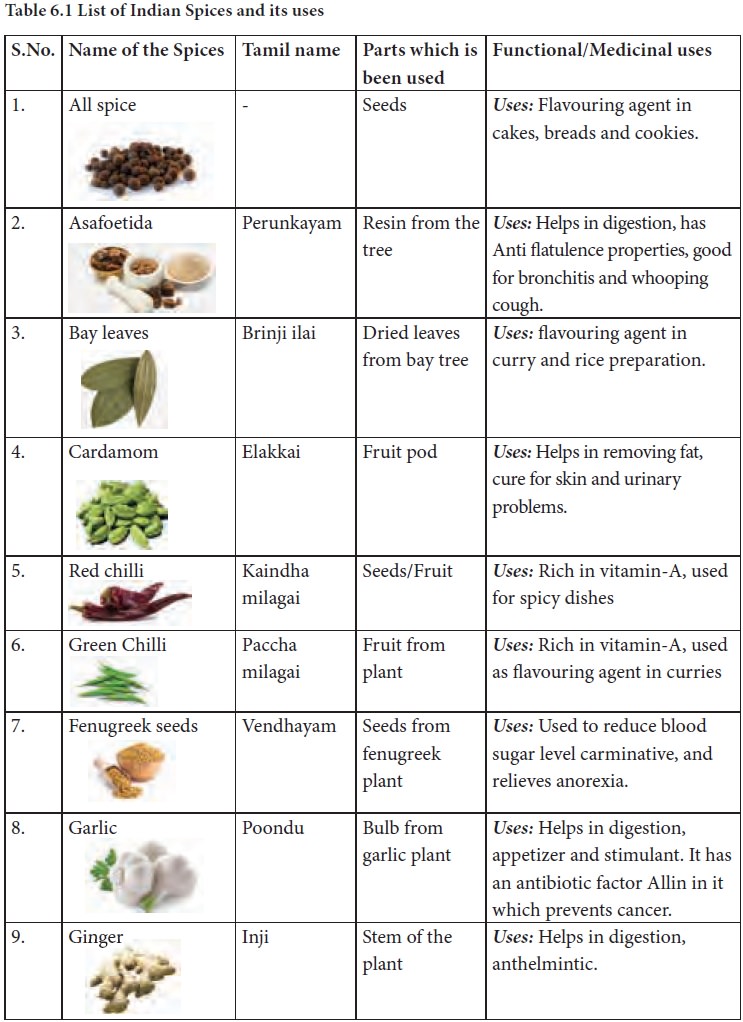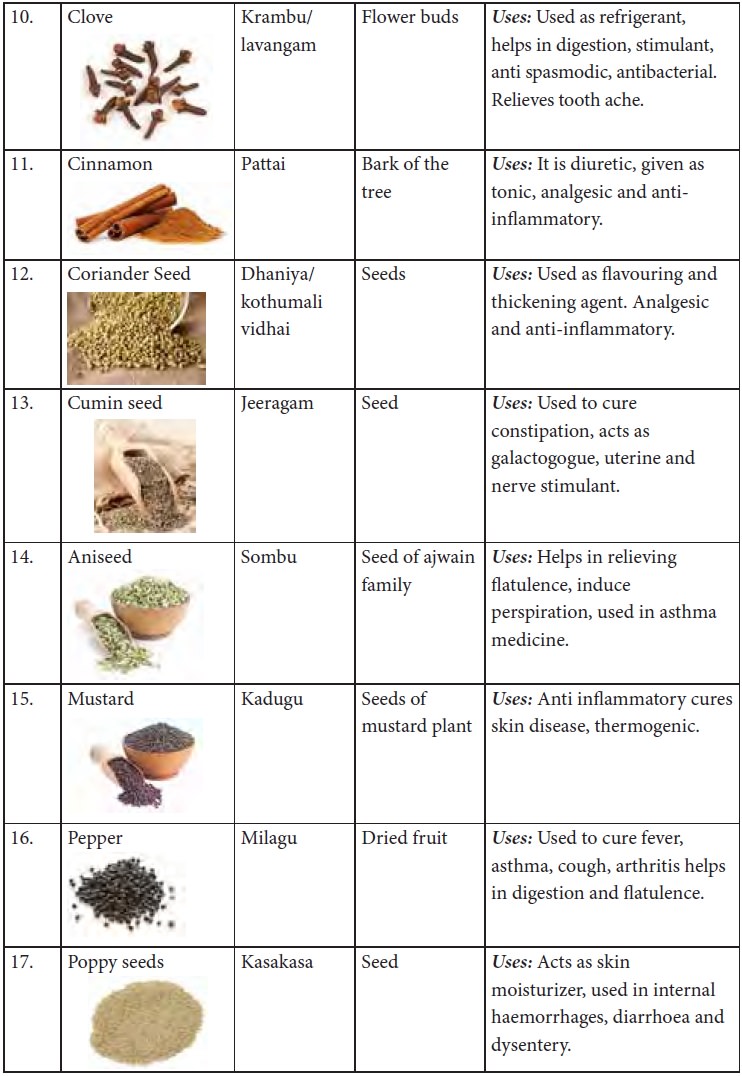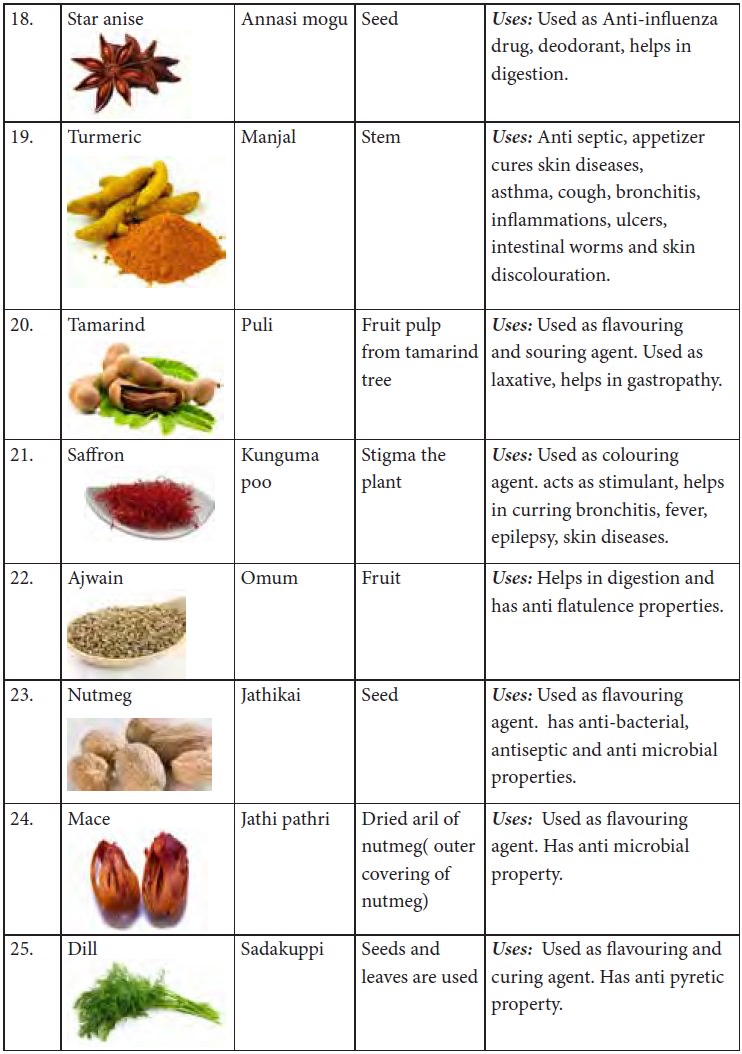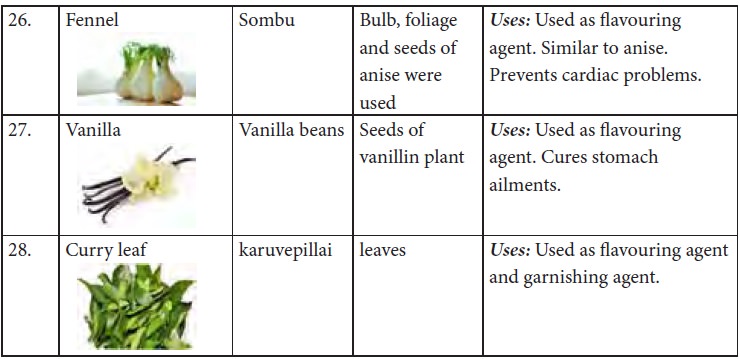Nutrition and Dietetics - Spices | 11th Nutrition and Dietetics : Chapter 6 : Spices, Food Additives and Food Adulteration
Chapter: 11th Nutrition and Dietetics : Chapter 6 : Spices, Food Additives and Food Adulteration
Spices
SPICES, FOOD ADDITIVES AND FOOD ADULTERATION
Spices and aromatics
are the very heart of Indian cooking. It has been used since ancient times and
mentioned in Vedas, Egyptian Papyruses and the Old Testament. Food additives
are substances added to food to preserve flavour or enhance its taste. It’s
been used for centuries. Due to increase in population and more demand for food
the food adulteration has been caused in today’s world. An idea about spices,
food additives and food adulteration helps us proper
selection and usage.
Spices
A spice is a seed,
fruit, root, bark, leaf of plant substance primarily used for flavouring,
colouring and preserving food. Spices are distinguished from herbs while the
herbs are the leaves, flowers or stems from plants used for flavouring or as a
garnish. In the culinary arts, the word spice means “Any dried part of a
plant, or bay leaf which is used as spice and it used for seasoning and
flavouring a recipe, but not used as the main ingredient”.
Role of spices in Indian cookery
Spices add flavour to food, make the food
palatable and add variety in the daily diet.
Spices stimulate salivation, acid secretion
and digestive enzymes.
Spices like turmeric, pepper have medicinal
values such as anti- inflammatory, anti-bacterial, stimulant and antioxidant
properties.
Spices help in improving the impaired blood
glucose levels in the body and control diabetes.
Spices reduce cholesterol levels and useful in
preventing heart diseases.
Spices act as preservative, thus prolongs the shelf
life of foods.
Nutritional Value of Spices
Spices are usually
used in small quantities to flavour a dish. They add few calories to meal and
cause a less impact on the nutritive value of foods. Spices add calories to
food in negligible amount, even though many spices made from seeds contain high
portions of fat, protein and carbohydrate when used in larger quantities.
List of Indian Spices and its uses




Related Topics